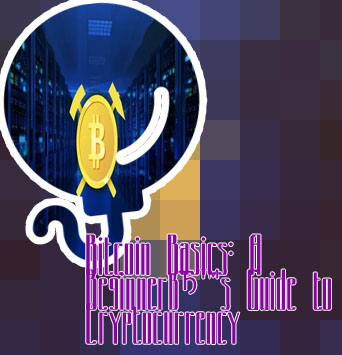What is bitcoin
What is Bitcoin Mining?
Bitcoin’s “proof-of-work” model requires miners on the Bitcoin network to solve highly complex math problems to validate transactions. In return, these miners are rewarded with newly created Bitcoins. The fact that so many computers are spending so much power to validate transactions means that it’s essentially impossible to get at least 51% of those computers to validate an inaccurate version of the ledger. Bitcoin explained People can send bitcoins to each other using mobile apps or their computers. It’s similar to sending cash digitally.Bitcoin information
Picture gold under the ground. We know it's there, but its value is hidden until a miner digs it up. In the Bitcoin world, a miner unearths Bitcoins by using expensive computers to solve cryptographic puzzles in real time that "mine" bundles of transaction records ("blocks") to the blockchain. 4. Banks and governments aren't part of the chain. Satoshi Nakamoto stated in an essay accompanying bitcoin's code that: "The root problem with conventional currencies is all the trust that's required to make it work. The central bank must be trusted not to debase the currency, but the history of fiat currencies is full of breaches of that trust."
Earning Bitcoin
 Bitcoin is a type of digital currency which operates outside the mandate of a central authority. There are several variants of the cryptocurrency which have resulted from forks. These include bitcoin cash, bitcoin gold and bitcoin diamond. This article focuses predominantly on bitcoin. What is cryptocurrency mining and how does it work? Crypto advocates argue that the proof-of-work process is becoming more energy efficient: that more and more miners are turning to renewable energy sources like wind, solar, or hydropower, as opposed to coal or natural gas. However, one peer-reviewed study from earlier this year shows the opposite: that the Bitcoin network’s use of renewable energy dropped from an average of 42% in 2020 to 25% in August 2021. Researchers believe that China’s crackdown on crypto, where hydropower-driven mining operations used to be plentiful, was the primary catalyst of this decrease.
Bitcoin is a type of digital currency which operates outside the mandate of a central authority. There are several variants of the cryptocurrency which have resulted from forks. These include bitcoin cash, bitcoin gold and bitcoin diamond. This article focuses predominantly on bitcoin. What is cryptocurrency mining and how does it work? Crypto advocates argue that the proof-of-work process is becoming more energy efficient: that more and more miners are turning to renewable energy sources like wind, solar, or hydropower, as opposed to coal or natural gas. However, one peer-reviewed study from earlier this year shows the opposite: that the Bitcoin network’s use of renewable energy dropped from an average of 42% in 2020 to 25% in August 2021. Researchers believe that China’s crackdown on crypto, where hydropower-driven mining operations used to be plentiful, was the primary catalyst of this decrease.
What is bitcoin?
Stablecoins aim to be a more stable form of crypto-asset than bitcoins. Issuers link them to a trusted type of value, such as company assets or gold. However, the value of a stablecoin is only a promise made by a private company. There is no public institution backing it, unlike with official currencies. Stay up-to-date Users can hold and spend bitcoins from a cryptocurrency wallet. A wallet is like a personalized location on the distributed ledger that refers to only your currency holdings. When you acquire bitcoins, your wallet provides a unique cryptographic address to the sender. To spend or send bitcoins, you might scan a retailer’s QR code or direct money to its public address.

